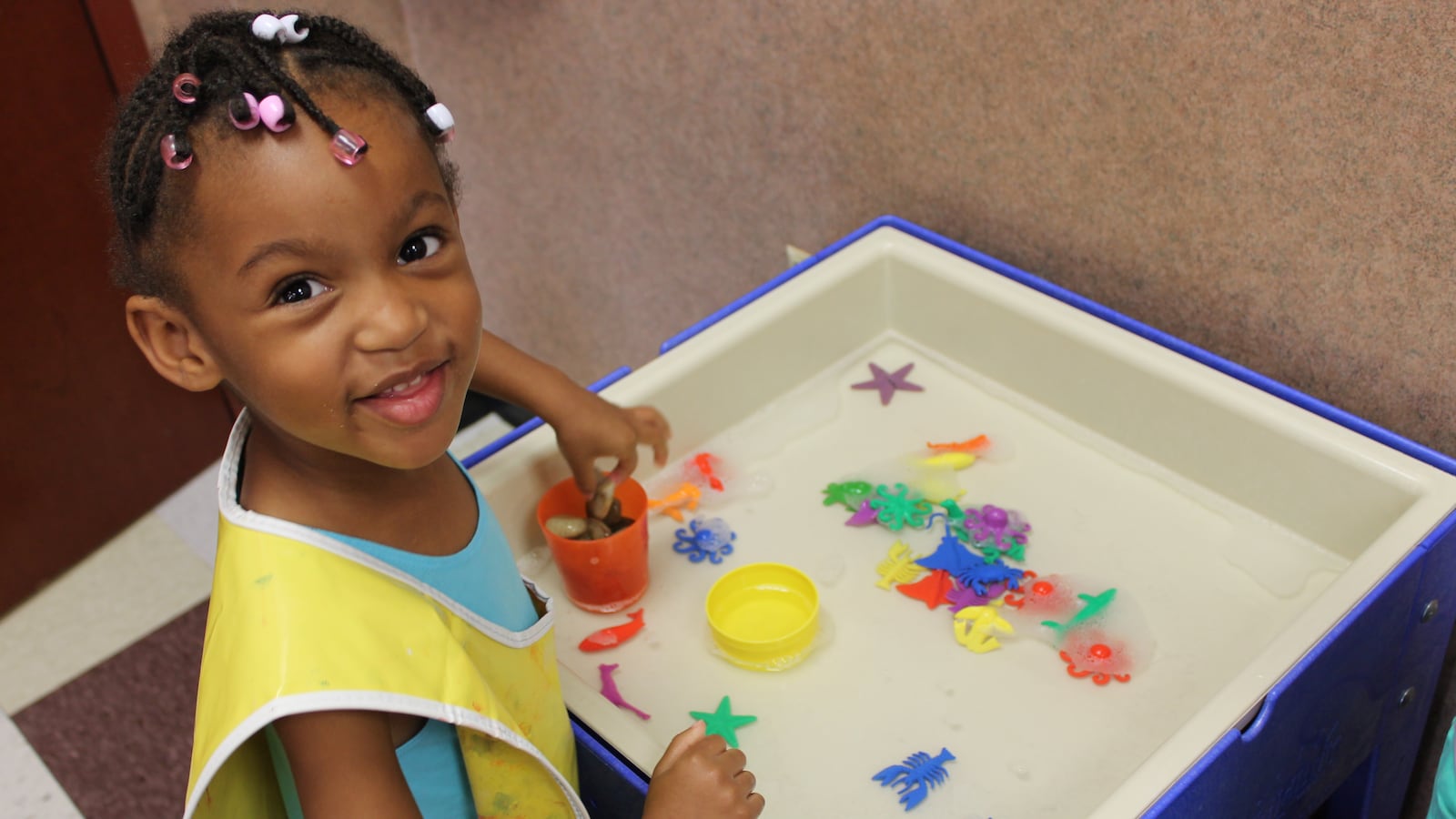All parents look for a quality program when they send their children off to preschool. But in Tennessee, parents may have to look a little longer and harder than families in many other states.
Tennessee met only five of 10 quality benchmarks designed by a national research institute that released its annual preschool report last week. The report criticized the state for its lack of both a rigorous curriculum and a system that measures improvement in classroom quality.
Children enrolled in privately funded programs were not included in this data.
The quality benchmarks range from professional development to classroom size to curriculum. Only three state-funded pre-K programs met all 10 of the new standards — Alabama, Michigan, and Rhode Island.
The report also showed that funding for Tennessee’s preschool program — known as the Tennessee Voluntary Pre-K — has been largely stagnant since 2010.
These findings come from the “State of Preschool 2017,” a report released last week by the National Institute for Early Education Research at Rutgers University. The annual report looks at state spending, enrollment, and quality in the 43 states and Washington D.C. that provide state-funded preschools.
Tennessee responded that the state has moved toward improving quality, but doesn’t have a plan in place yet for measuring outcomes.
“We are currently considering our next steps for monitoring quality, but currently do not have the infrastructure for site-based monitoring of these quality indicators,” state Education Department spokeswoman Sara Gast said in a written statement.
However, the state recently contracted with 15 educators and experts to review and help select higher caliber pre-K curriculums that will be taught in state-funded classrooms starting in the 2018-19 school year.
But the founder of the institute that led the study said that to really make progress, Tennessee has to first start measuring and tracking the quality of its classrooms.
“It all comes back to this — there’s nobody at the state level that’s engaged and paying attention to the system to first, identify problems and second, to fix them,” Steven Barnett, co-director and founder, told Chalkbeat.
When analyzing Tennessee, the report pulled from a 2015 study by Vanderbilt University that showed the benefits of Tennessee’s Voluntary Pre-K program faded by the second grade — and that students who attended eventually performed worse than their peers.
At the time, the state pledged to shore up quality of pre-K teachers and offer more professional development for them.
In the current report, Tennessee’s ratings fell in the middle of the pack — ranking 27th for 4-year-old access to preschool, 25th for 3-year-old access and 23rd for state funding.
The report said Tennessee’s stagnant funding has kept enrollment hovering near 18,500 pre-K students since 2010 — or 22 percent of 4-year-olds and one percent of 3-year-olds.
Gast said in her statement that the state is filling 90 percent of available pre-K seats with 4-year-olds from low-income families.
Tennesseans for Quality Early Education, a statewide advocacy group, said they want to see the state shore up program quality before adding new seats.
“Quality pre-k works, but program quality is inconsistent across the state,” said Lisa Wiltshire, policy director at the advocacy group. “Tennessee should stay the course and double down on pre-k quality improvement efforts… so that pre-k gains can be sustained.”

